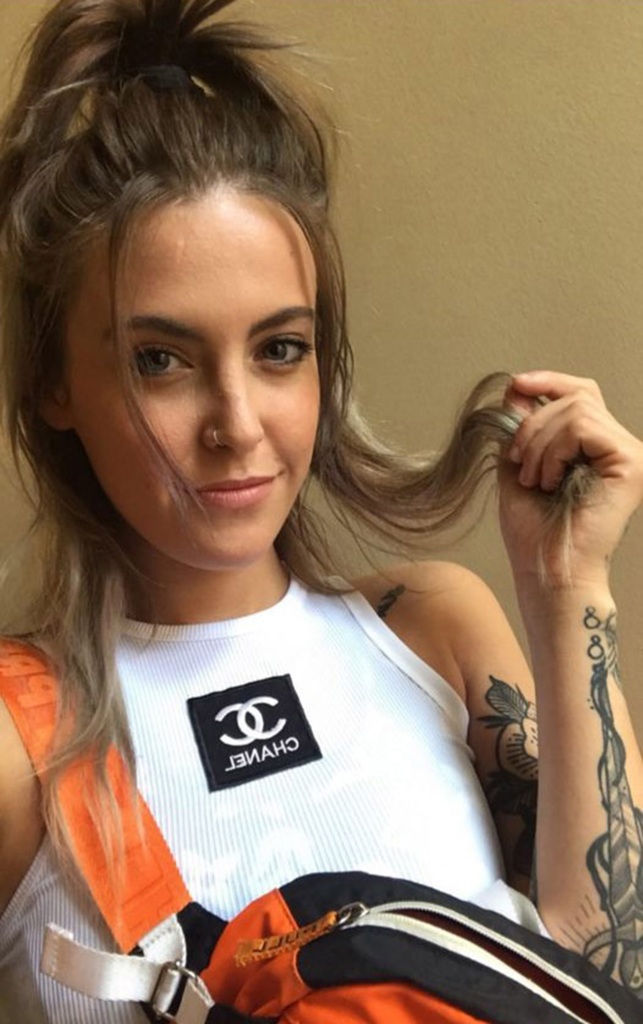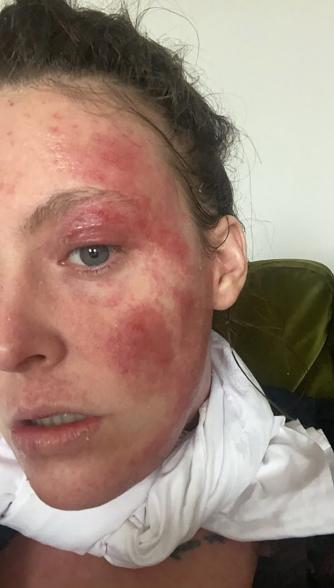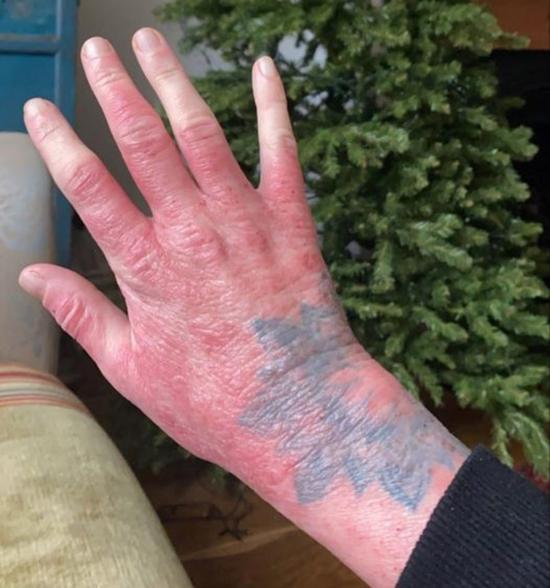Steroid cream withdrawal made me hate my face and cover all my mirrors
Terrifying withdrawal symptoms from eczema creams left one woman unable to leave the house — or even look at herself in the mirror.
Daisy Malin was diagnosed with mild eczema when she was just a toddler and had since been prescribed various topical steroid creams to combat the condition.
But managing her eczema was nothing compared to what she experienced due to topical steroid withdrawal when she finally decided to kick the creams.
“Some of my earliest memories are of my mom covering me in steroid creams, balms and ointments — wrapping me in cling film before bed and generally just being slathered in creams,” the 26-year-old from London told Jam Press.
Growing up, Malin never went anywhere without her eczema creams — storing them in her mom’s bags or at her school desk at all times.
“And soon enough, caution turned into chaos,” Malin said.
She remembered a doctor telling her as a teenager that Betnovate, a high-strength steroid, “won’t hurt on your face,” and being prescribed 10 tubes of Hydrocortisone cream by another.
While steroid creams are not a cure, they are used to treat and reduce inflammation of the skin caused by conditions including eczema and psoriasis. However, topical steroids are safest “when used intermittently,” the National Eczema Association warns.
For Malin, the creams were a temporary fix. Her skin would calm down for a short time before she would have another flare-up. As she got older, she became more and more dependent on stronger doses.
Seeing no end, she recently decided to break the cycle and stop using them altogether.
“They started offering me new drug trials and I started to worry about what would happen next if I continued to take them,” she recalled.
Malin slowly decreased her use of the topical steroids beginning in March 2021 and was finished with them by June.
That’s when she began to see a whole new batch of uncomfortable symptoms — associated with topical steroid withdrawal. Quitting creams caused her face, neck, arms and hands to become red and painfully inflamed.
It looked and felt worse than her eczema ever did.
“At the start of topical steroid withdrawal I couldn’t even look in the mirror,” she shared. “I had to cover them all with blankets as I felt like I lost the person looking back at me, and I hated what was looking back.”
Her litany of symptoms included burning, weeping, flaking, shedding, peeling, cracking, itching, swelling, wrinkling and thinning skin. She also endured insomnia, hair loss, fatigue, depression and brain fog during this time.

The use of topical steroids “has become a double-edged sword” due to abuse and misuse of the products that can lead to severe side effects, especially with steroids of higher doses and on sensitive areas, according to the National Institutes of Health.
“I couldn’t leave the house, I barely moved due to being in so much pain and I think I blacked out a lot of the beginning due to trauma,” Malin said.
“It was so painful, imagine feeling like you’re covered in tiny paper cuts, like your body is always damp,” she said. “Like your clothes are stuck to you and feel like there’s no way you’ll ever be comfortable or able to socialize, let alone leave the house again.”
Aside from the pain and irritation, her symptoms drew a lot of unwanted attention. “People often asked me what was wrong, if I was sunburnt or if it was contagious,” she shared. “So I eventually stopped leaving my flat and began to isolate myself. People would just stare at me.
“I felt very isolated and overwhelmed,” she added.
Malin has been trying to find coping mechanisms to deal with the loneliness on her road to recovery.
“At the start of TSW I felt lost, lonely, vulnerable and found it almost impossible to share my true emotions without getting upset,” Malin said. “I found sleepless nights hard and decided to write down some of my thoughts, they usually ended up in the form of a poem, which is something I have never done before.”
She turned to social media for support and soon learned that this reaction was not unique to her.
Now, she’s sharing her own journey. “I think I’m finally ready to share with the world my thoughts and how small TSW really did make me feel at the beginning, and hopefully inspire others who are feeling the same,” Malin said.
“It’s OK not to be OK,” she continued. “Being vulnerable doesn’t make you weak, talking about your issues doesn’t make you powerless, if anything it’s the opposite. Your experiences give you the power to help others.”
Malin’s skin is improving as she takes many small steps to recover her complexion. “I’m staying positive for what the future can hold and hope my journey and recovery can help others feel less alone in their skin,” she said.
Read the full article Here




